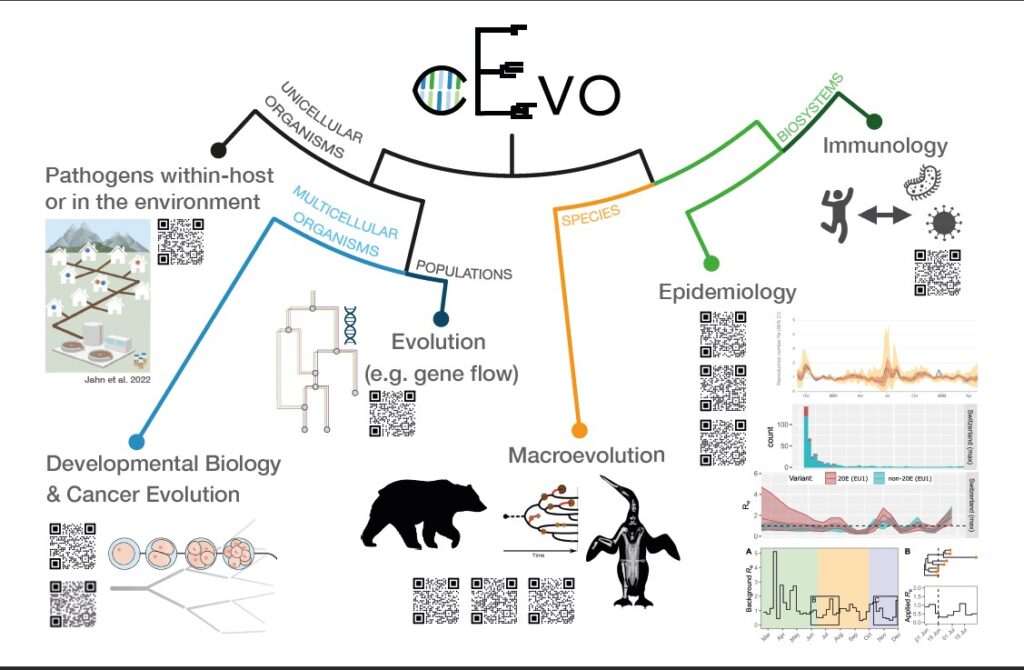Understanding the evolution of life

Whether it is the origin of animal species, the growth of an organ or the spread of pathogens, all life on Earth develops through evolutionary processes. By studying these, we can understand the influences of biology on our world.

Evolution is a universal process, affecting all living things on the planet. It is complex, and often messy. Only by studying evolution can we understand fundamental aspects of biology and the many ways it affects our lives. In the Computational Evolution group at ETH Zurich, we use a common framework – evolutionary trees – to reconstruct how evolution takes place.
At our booth you can explore evolution in three very different settings.
Species evolution
How did the full diversity of life on Earth arise, and how can we preserve it in the future? It is thought that all life shares a common ancestor; this means that the animals we see around us are all related, some more closely than others. Complete our phylogeny puzzle to discover these relationships!
Single cell dynamics
All living things began as a single cell – even you! As they grow, cells divide and take on different roles. But how do cells know when to divide and what to become? And what happens when things go wrong? Understanding these processes could help us develop new treatments for diseases. Play our card game to see if you can create a functioning organ!
Pathogen spread
The genomes of viruses and bacteria often evolve so fast that we can track their spread by looking at how their DNA or RNA changes over time. Understanding how and why these pathogens spread can help us to respond effectively during epidemics. Try out our nucleotide reader and see our Scientifica “epidemic” phylogeny to find out more!

